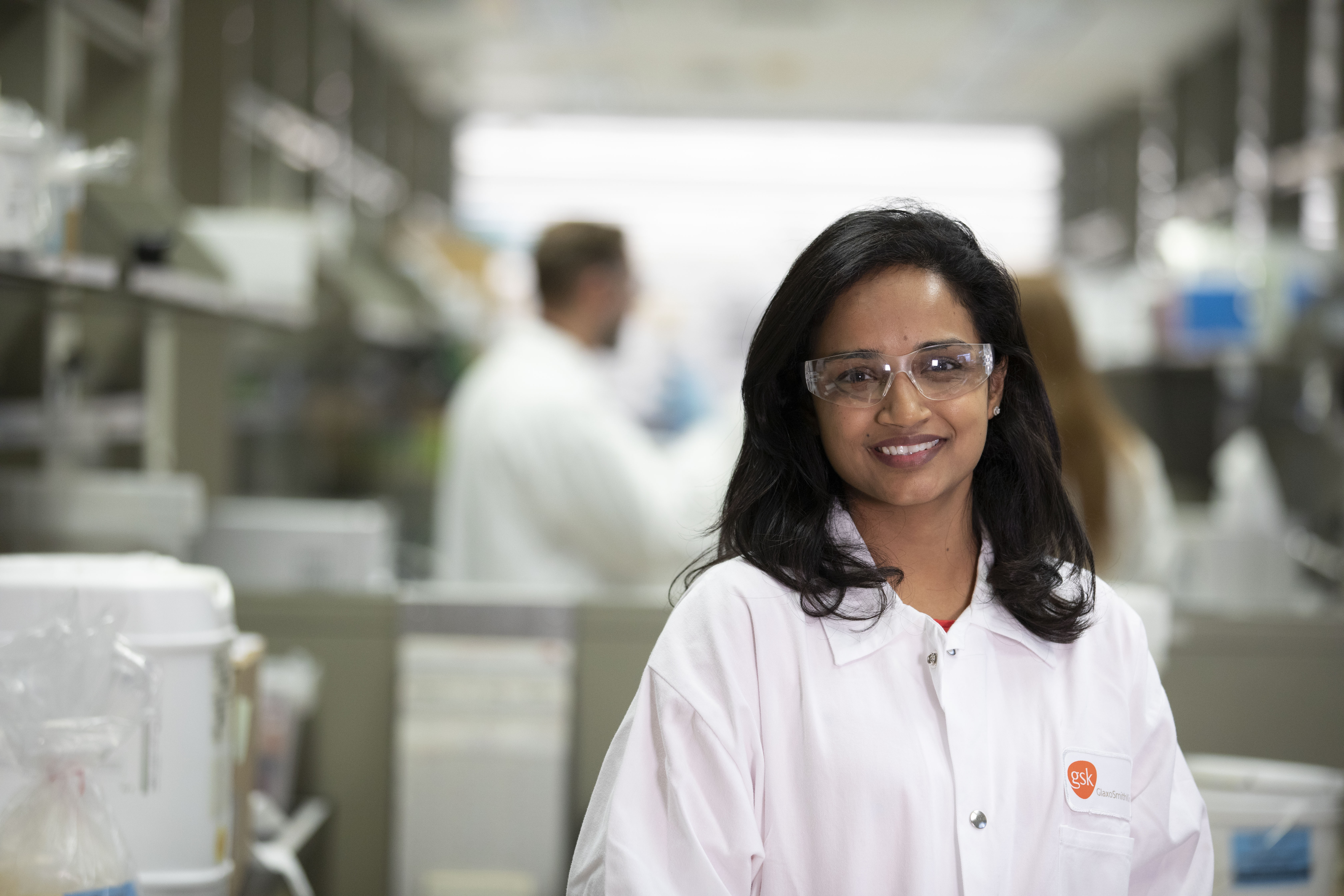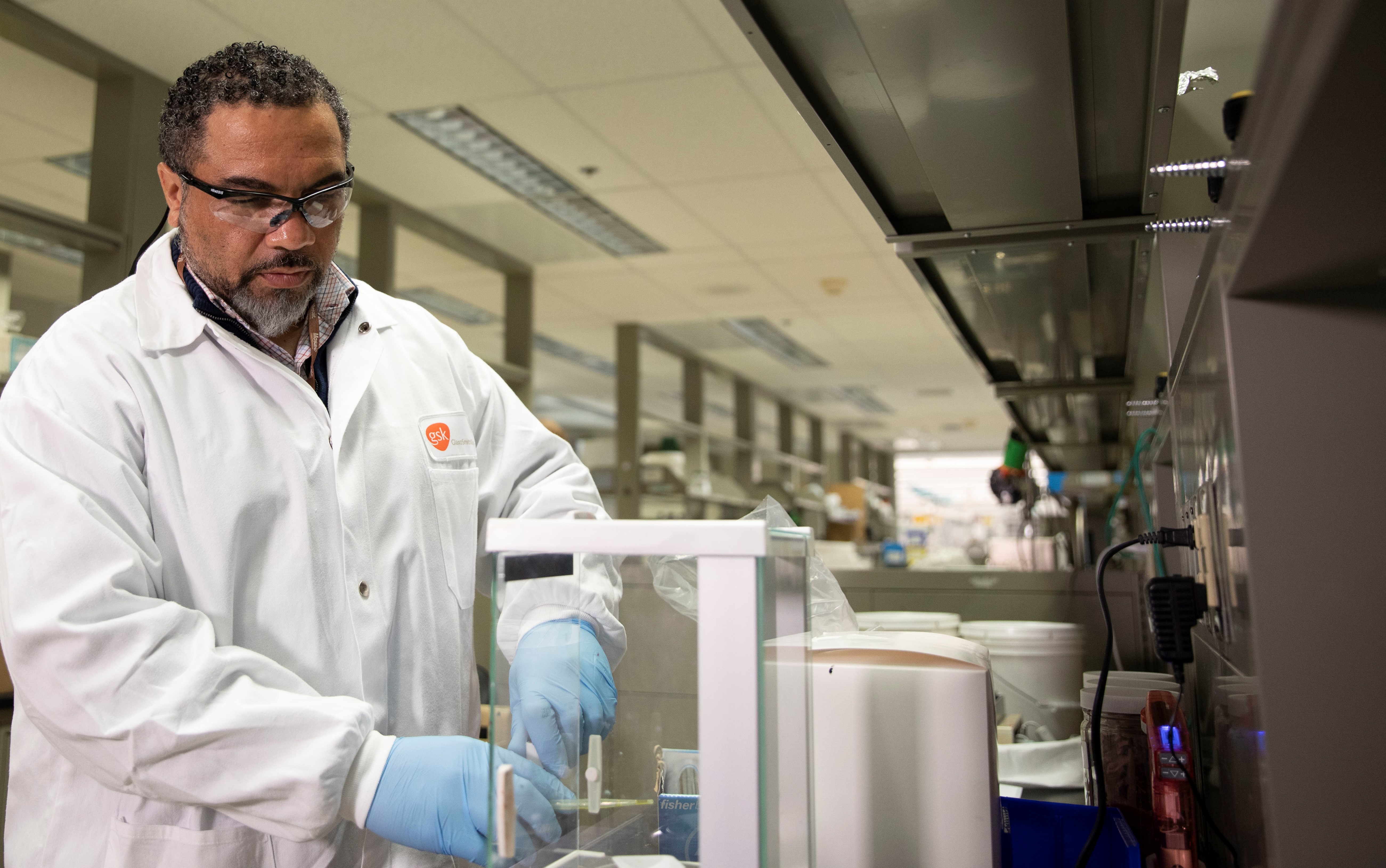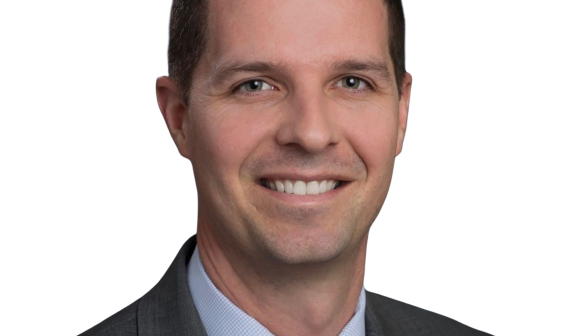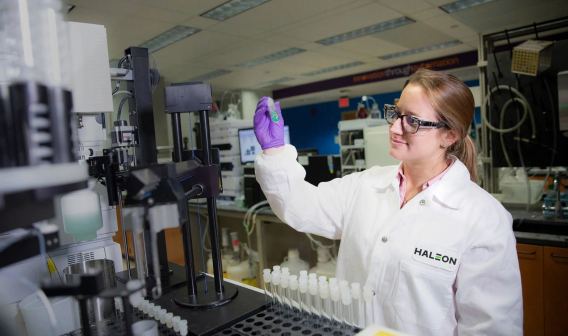
GlaxoSmithKline Consumer Healthcare, Richmond
Despite facing an unprecedented global pandemic, executives at GlaxoSmithKline Consumer Healthcare (GSK) were able to recruit 150 new employees for the company’s research and development center in Richmond.
In October 2019, the company announced Richmond as the site for one of GSK’s three research and development laboratory hubs for the company’s global business — and that GSK planned to invest $16.7 million in expansions at the facility and bring new jobs to the Commonwealth. The news came months after GSK finalized a transaction with pharmaceutical giant Pfizer Inc. to combine their two consumer healthcare businesses into the largest over-the-counter healthcare company in the world. Previously, the Richmond facility had served as the global research and development headquarters for Pfizer Consumer Healthcare. Richmond and Virginia officials, along with VEDP representatives, diligently competed with GSK Consumer Healthcare’s other domestic and international research and development network sites to land the project for Richmond.
Luckily, the state capital proved to be the best location for GSK. “Not only do Richmond and the Commonwealth provide access to great talent and great universities, but it’s also a business-friendly environment here, as well,” said Dr. Peter John Ramsey, vice president and head of GSK, Consumer Healthcare R&D, the Americas.
Today, GSK’s R&D complex on Sherwood Avenue in Richmond serves as a nucleus of innovation where scientists and engineers work to develop new products to add to GSK’s list of consumer healthcare brands, which includes household names like Robitussin, ChapStick, Advil, and Centrum. As Ramsey put it, “A lot of iconic brands for the world are developed here.”
Typically, the staff stays busy developing about a hundred new products at any one time, according to Todd Koch, a senior director and site lead for GSK Consumer Healthcare.
For GSK, success depends on hiring some of the brightest minds in science. “Great talent is what we need, and so recruiting for us becomes a very pivotal and critical activity,” said Ramsey.
GSK hiring managers look for professionals with an understanding of consumer healthcare trends and regulatory issues. “It’s important to have individuals who not only have a scientific and technical background, but individuals who understand the business,” Ramsey said.
The company is almost always looking to hire for three in-demand positions: formulation scientists, who conduct experiments to create new products and improve existing formulations; analytical chemists, who work in the labs studying various dose forms of products and troubleshooting manufacturing issues; and process engineers, who design processes for manufacturing products on a large scale.
“It’s been a challenge to fill some of those positions because there’s a low supply of those individuals, but, overall, we’ve been pretty successful with all three categories,” Koch said.
In a typical year, the R&D facility in Richmond would have a 4% vacancy rate, which means the company would need to hire around a dozen new employees. GSK’s plan to recruit 150 skilled employees was a significantly bigger endeavor, but Dana Allison, a human resources director for GSK, felt up to the challenge. “It was really very exciting to be in a growth mode and to be able to hire new scientists,” she said.
Shortly after the announcement of the expansion at GSK’s Richmond facility, Allison met with specialists from VEDP’s Virginia Talent Accelerator Program, a workforce initiative that offers world-class training and recruitment solutions that are fully customized to a company’s unique operations, equipment, standards, and culture. Together, they began work on a recruitment campaign.
“The team was so responsive,” Allison said. “And they deliver on their commitments. They do what they say they’re going to do.”
The first order of business was wooing scientists from a small GSK R&D laboratory in Warren, N.J., which was closing as part of the company’s restructuring plan. “To be able to bring expertise — not only their scientific expertise, but their background in GSK processes and culture — was very important to us,” Allison said.






